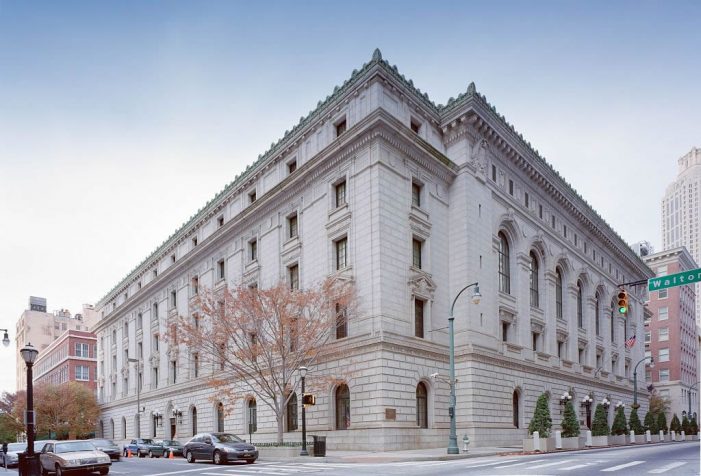By Jim Saunders, The News Service of Florida
TALLAHASSEE — In a legal battle rooted in the discovery of a 13-year-old human trafficking victim working as a dancer, a federal appeals court Monday largely upheld restrictions that Miami Beach placed on nude strip clubs.
A three-judge panel of the 11th U.S. Circuit Court of Appeals rejected arguments that a city ordinance unconstitutionally imposed increased worker-identification requirements on strip clubs and allowed the city to inspect logs of workers entering and leaving the establishments.
The court, however, found that the city overstepped its legal authority when it required clubs to confirm that dancers are U.S. citizens, legal residents or otherwise eligible to work in the country.
Miami Beach passed the ordinance after police discovered that the 13-year-old girl was working as a nude dancer at Club Madonna after running away from home and being taken by four adult captors, according to the ruling. The club challenged the ordinance, leading to years of legal battling.
In part, the club argued that the ordinance violated First Amendment rights. Monday’s ruling agreed that the ordinance “implicates the First Amendment because it singles out an industry that engages in expressive activity for special regulation,” but the panel concluded that the measure did not violate the rights.
“The ordinance’s core identification and record-keeping requirements are necessary to achieve the city’s stated and obviously important interests in preventing human trafficking and barring minors from dancing nude on a public stage,” said the 54-page main opinion, written by Judge Stanley Marcus and joined fully by Judge Richard Story and partly by Judge Kevin Newsom. “The requirement that workers or performers produce two forms of identification instead of just one — which the club says is unnecessarily burdensome — combats the ‘rampant use’ of counterfeit forms of identification on Miami Beach and reduces the likelihood that a victim of human trafficking or a minor will perform onstage. Given the significant latitude we afford policymakers, and our obligation to defer to a legislative body’s reasoned judgment, we hold that these core identification-verification and record-maintenance requirements are reasonable when measured against the statute’s aims.”
The appeals court, which upheld a ruling by a federal district judge, also rejected a challenge to part of the ordinance allowing the city to inspect documents and worker logs “upon demand.” The club argued that the ordinance violated a prohibition on warrantless searches under the U.S. Constitution’s 4th Amendment.
But in upholding that part of the ordinance, the panel pointed to extensive regulation of the adult-entertainment industry.
“Based on a substantial history of heavy regulation, we conclude that the nude dancing and adult entertainment industry is closely regulated for Fourth Amendment purposes so that no reasonable expectation of privacy could exist for the proprietor,” the opinion said. “From limitations concerning the hours of operation, to zoning restrictions, to prohibitions on their ability to serve alcohol, to rules governing the very size of the establishments, adult entertainment businesses are routinely — and pervasively — regulated by cities and municipalities.”
The court, however, agreed with the club that the city could not require establishments to verify that dancers are citizens or otherwise eligible for employment. Marcus wrote that federal law governs such requirements, and Congress provided an exemption for verifying the employment eligibility of contract workers or “casual hires.”
“Here, the ordinance fails the relevant constitutional test because, by requiring certain businesses to verify the employment eligibility of independent contractors and casual hires, it obstructs federal law,” the opinion said.
Marcus wrote that the unconstitutional part of the ordinance was “severable” and did not prevent the other requirements from being in effect.


Contract workers don’t pay into worker’s comp, so guess who takes care of the bill when these people get injured on the job. This is a plan by the leftist government to destroy the middle class
by not allowing enforcement and accountability for businesses that hire these illegal people. Clearly the Appeals Court is now controlled by George Soros and is not looking after the American worker. The Appeals Court and the American Government are completely corrupt.
My wife has no problem with me being entertained by a stripper.
She doesn’t let me go to strip clubs, requiring that I watch from my recliner. And she’s the only stripper she lets me watch.
I think she’s onto something….
Speaking of Judges, Leon Co Judge Barbara Hobbs is getting a Public Reprimand August 31. I hope TR covers it.
@Snidely
Great name, “Rocky and the 6roomers.” Sounds like a rock-music group.
I must say, Snidely, you are a genius wordsmith!
And just think… the Treasonous Biden Sadministration – in collusion with Mexican Cartels – is openly engaged in one of the largest Human Trafficking operations in recent history, and flooding the country with hundreds of thousands of underaged illegal alien girls who will soon be working the streets and in the stripclubs. I guess it’s ok as long as they drive EV’s… aye Joe?
What happened to that 13 year old child in Miami is almost as disgusting as what “Rocky And The 6r00mers” are doing our own precious kids right here in Leon County.
“Almost as disgusting” because “Rocky And The 6r00mers” are starting on your kids as young as preK and are advocating for genital mutilation in their sex reassignment 8ull(rap. Along with their new “Dancing With The Drag Queens” district wide inititave.
FYI: not here at TR but social media has instituted a ban on the word “Groomer” so as a public service I gave you the sneeky way to spell it and I just threw the “Bullcrap” sneeky way at y’all for free.
BUT, did you go after the Club’s OWNER for Hiring a 13 YEAR OLD to be a NUDE DANCER?